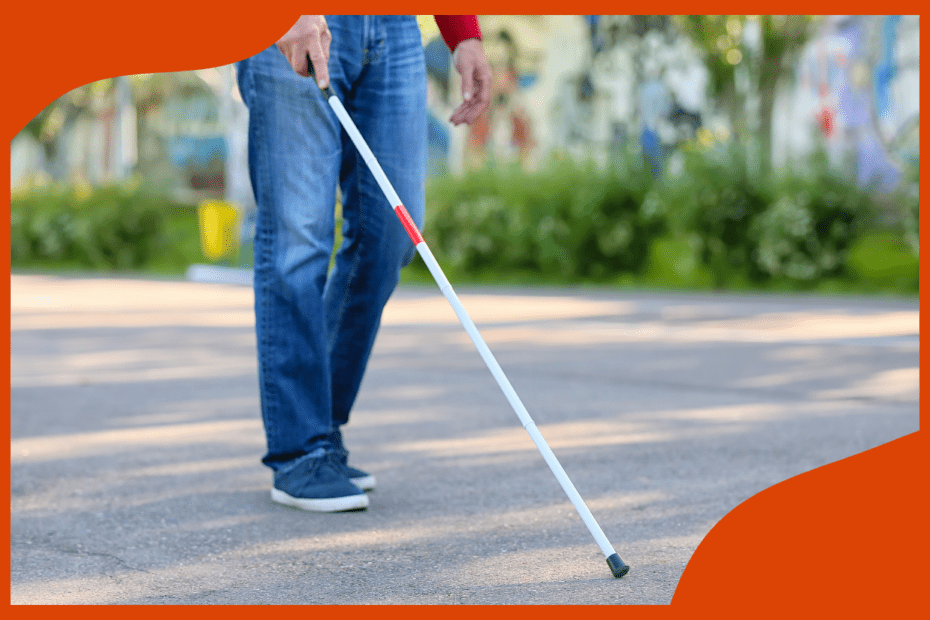If you’re losing your sight, you’re likely experiencing a mix of emotions—fear, frustration, and uncertainty, maybe even a sense of imposter syndrome about identifying as visually impaired. It’s a lot to process, and it’s okay to feel overwhelmed. The good news is that you’re not alone, and there are steps you can take to feel more prepared, both emotionally and practically, for what lies ahead.
Acknowledge Your Feelings
Grieving the loss of your sight is natural. You’re going through both a massive physical change, as well as adapting to a new way of experiencing the world. Allow yourself to feel those emotions, and don’t hesitate to seek support. Therapy can be a powerful tool, offering coping strategies and a space to process your feelings.
Build a Toolbox of Resources
- Orientation and Mobility Training: Learning to navigate your environment confidently with a white cane can be life-changing. Reach out to your local Division of Services for the Blind to get started.
- Join a Community: Connecting with others who understand your journey can ease feelings of isolation. Many local and online groups offer opportunities to share experiences and learn from others who’ve been in your shoes.
- Technology and Accessibility Tools: From screen readers to GPS apps designed for navigation, there’s a wide range of tools that can help you maintain independence. Explore options that suit your needs and lifestyle.
Practical Tips for Managing Anxiety
Adjusting to losing your sight often brings new anxieties—fear of tripping, navigating unfamiliar places, or riding as a passenger in a car. These feelings are valid, but there are strategies that can help:
- Mindfulness Practices: Exercises like the sensory countdown (e.g., identifying things you can hear, see, and feel) can ground you in the present moment and reduce anxiety.
- Cognitive Behavioral Techniques: Challenge anxious thoughts by asking yourself, “What’s the worst that could happen? How would I handle it?” Breaking down fears into manageable steps can make them feel less overwhelming.
- Find a Distraction: Whether it’s listening to music, a podcast, or working on a hobby, having something to focus on can make stressful moments, like car rides, feel more manageable.
Celebrate Small Wins
Learning to adapt as you lose your sight is something that takes time. Each skill you master, whether it’s using a white cane, leveraging a screen reader to navigate your computer, or simply feeling more at ease in a crowded space, is a victory. Celebrate those moments. They’re milestones on your path to confidence and independence.
We’re Here to Support You
Losing your sight can feel overwhelming, but you’re not alone. There’s a supportive community out there, and navigating this new chapter is possible with the right resources and tools. At Ablr, we’re committed to helping companies create fully accessible digital spaces and implement disability inclusion in the workplace. But we’re also here to support you as you navigate and adapt to your new life. Follow along on our blog for helpful tips, advice, resources, and stories that inspire and empower.

